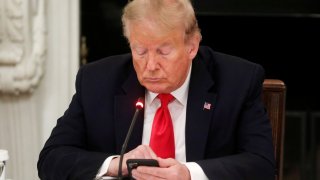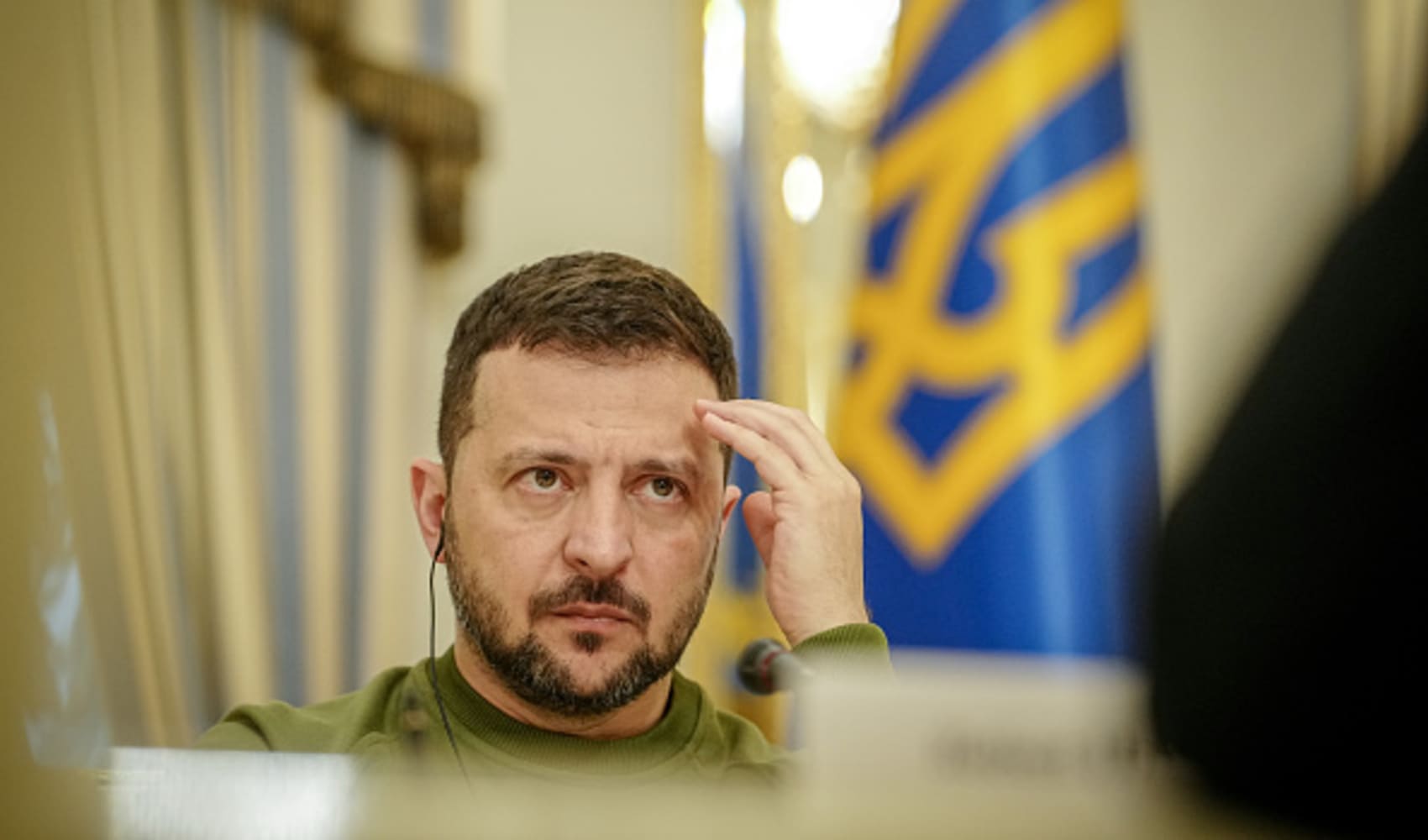
- The Supreme Court erased a federal appeals court decision holding that former President Trump violated the Constitution by blocking his critics on Twitter.
- The justices vacated the decision from the 2nd U.S. Circuit Court of Appeals and sent it back to the lower court with instructions to dismiss the case as "moot," or no longer active, now that Trump is a private citizen.
- The action means the lower court's decision will no longer bind future judges.
- The announcement came in an order list and without a written explanation of the court's reasoning. There were no noted dissents.
The Supreme Court on Monday erased a federal appeals court decision holding that former President Donald Trump violated the Constitution by blocking his critics on Twitter.
The justices vacated the decision from the 2nd U.S. Circuit Court of Appeals and sent it back to the lower court with instructions to dismiss the case as "moot," or no longer active, now that Trump is a private citizen. The action means the lower court's decision will no longer bind future judges.
A three-judge panel of the 2nd Circuit held unanimously in 2019 that Trump was acting in his official capacity when he used Twitter's block feature. By doing so, the court said, Trump was effectively excluding individuals from a public forum, in violation of the First Amendment.
We're making it easier for you to find stories that matter with our new newsletter — The 4Front. Sign up here and get news that is important for you to your inbox.
Monday's announcement came in an order list and without a written explanation of the court's reasoning. There were no noted dissents.
Justice Clarence Thomas wrote in a concurrence that he agreed with the decision to vacate the 2nd Circuit opinion given that Trump no longer held office.
Thomas said the petition highlighted the "principal legal difficulty that surrounds digital platforms— namely, that applying old doctrines to new digital platforms is rarely straightforward."
Money Report
"Respondents have a point, for example, that some aspects of Mr. Trump's account resemble a constitutionally protected public forum," Thomas wrote. "But it seems rather odd to say that something is a government forum when a private company has unrestricted authority to do away with it."
The suit was brought by individuals who were blocked by Trump on Twitter and the Knight First Amendment Institute at Columbia University.
It was known as Trump v. Knight First Amendment Institute, No. 20-197, until the change in administrations, at which point the case automatically became known as Biden v. Knight First Amendment Institute.
The Justice Department originally asked the top court to reverse the 2nd Circuit's decision, but asked the justices to dismiss the case as moot on Jan. 19, a day before President Joe Biden's inauguration, because of the change in administrations.
The Knight First Amendment Institute agreed that the case was moot, though for a different reason. The legal group said that the case was made moot after Twitter kicked Trump off its platform in January in the wake of the Jan. 6 attack on the U.S. Capitol.
In a statement, Jameel Jaffer, the Knight Institute's executive director, said the case "was about a very simple principle that is foundational to our democracy: Public officials can't bar people from public forums simply because they disagree with them."
"While we would have liked the Supreme Court to leave the Second Circuit's ruling on the books, we're gratified that the appeals court's reasoning has already been adopted by other courts, and we're confident it will continue to shape the way that public officials use social media," Jaffer said.






